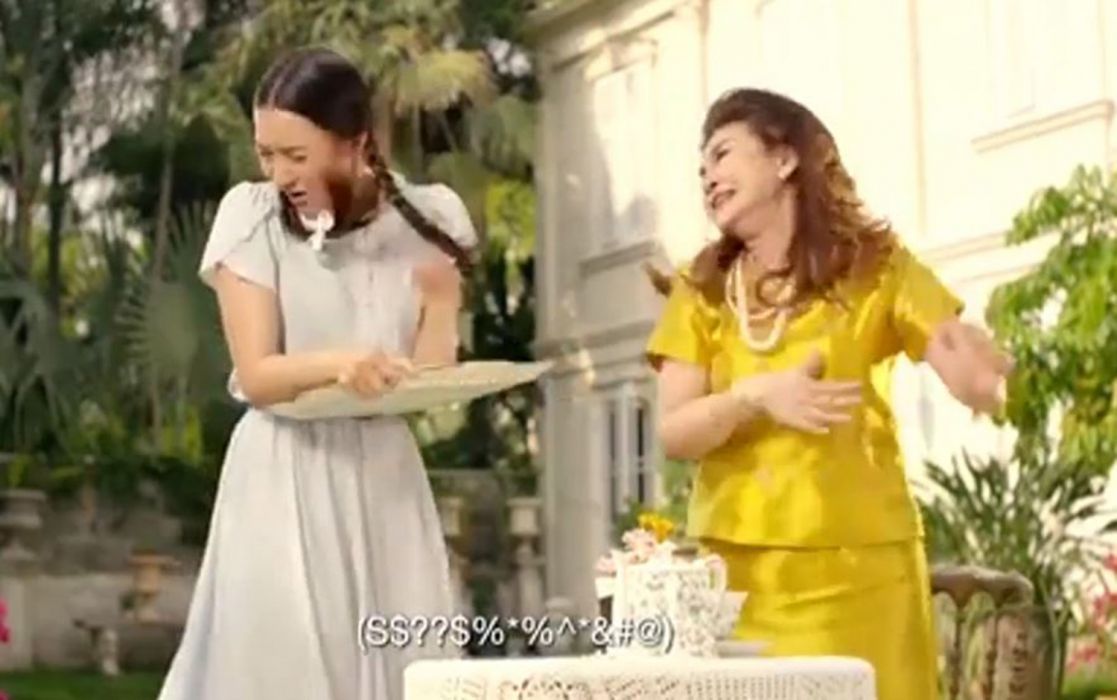Tesco Lotus has been forced to apologize for an advert which shows a Thai woman abusing her maid after it was slammed on social media for depicting domestic worker abuse.
The Thai-language advert, which is meant to be light-hearted and targeted at a Thai audience, shows the maid dropping a plate of crisps into the lap of her boss who then gets up and slaps the maid across the face.
But in the next scene when the boss is told by the maid that Tesco Lotus has a promotion offering huge discounts, she says to the maid “Mai pen rai,” or It’s okay.”
Jerome Taylor, a journalist based in Bangkok, tweeted that the ad covered a “real issue.”
Viewer Rob van Gelder said the advert was “a disgrace”.
“What is even worse is that they make the final statement with exactly this scene,” he wrote on Twitter.
A spokesman for Tesco said in a statement: “It was not our intention to cause offence and we’d like to apologize for any upset caused. We’ll be removing the scene from the advert going forward.”
But is the advert offensive in Thailand? Leo Burnett Thailand issued a statement regarding the scene:
“This scene is actually from a classic Thai drama, which the agency tweaked to add a sense of humor to it. As you see, this particular scene is part of a series of scenarios of people eating chips in the spot. In fact, this work is tracking well locally, as the locals are familiar with this classic scene.”
While the English subtitles provided for the scene loosely refer to the abused woman as a “housemaid,” the Thai narrator specifically calls her “Podjamarn”, the name of a character in a classic Thai novel, “Baan Sai Thong,” who was forced to be a maid in her own house — a lot like the Thai version of Cinderella.
The story has been turned into movies, television dramas, and plays about a dozen times since the 1950s.

Despite the fact that the advert is aimed at the Thai market where consumers are used to seeing acts of domestic and union violence every day on their televisions, creating jokes out of domestic violence is problematic.
Labor rights group Women in Informal Employment: Globalising and Organising (WIEGO) condemned the advert: “Part of people’s labour rights is that they are not physically abused by their employers. Any suggestion that that is OK, we’d certainly take issue with,” Mike Bird, Operations Director at WIEGO, told The Independent.
In 2013, junta chief Prayuth Chan-ocha criticized hugely popular television soap operas for promoting violence. Some television dramas have also been criticized for trivialising rape and domestic violence, reported Reuters.
“In our country, television dramas make people fight and they create divisions so we have much improvement to make in this area,” he said.
A survey from 2012 showed that domestic violence is on the rise in Thailand — with 30.8 per cent of households reporting abuse, reported The Nation.
And a survey carried out by the National Statistical Office (NSO) and Unicef among 27,000 households nationwide between September and November 2012, showed that about 13.1 per cent of women aged 15-49 believe their husband/partner has the right to hit or beat them.
Related:
‘White is winning’ racist whitening pill advert storms web
Unilever Thailand says sorry for controversial whitening contest





